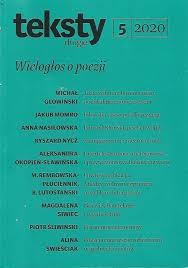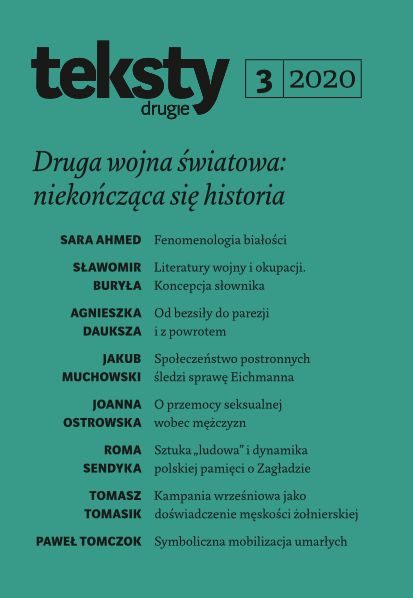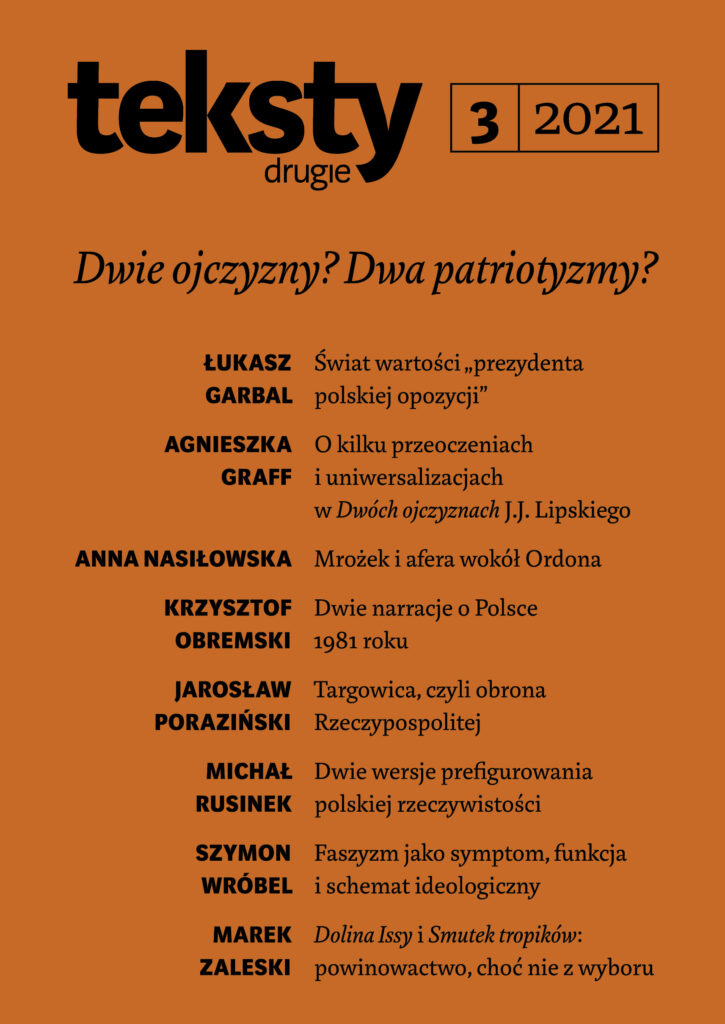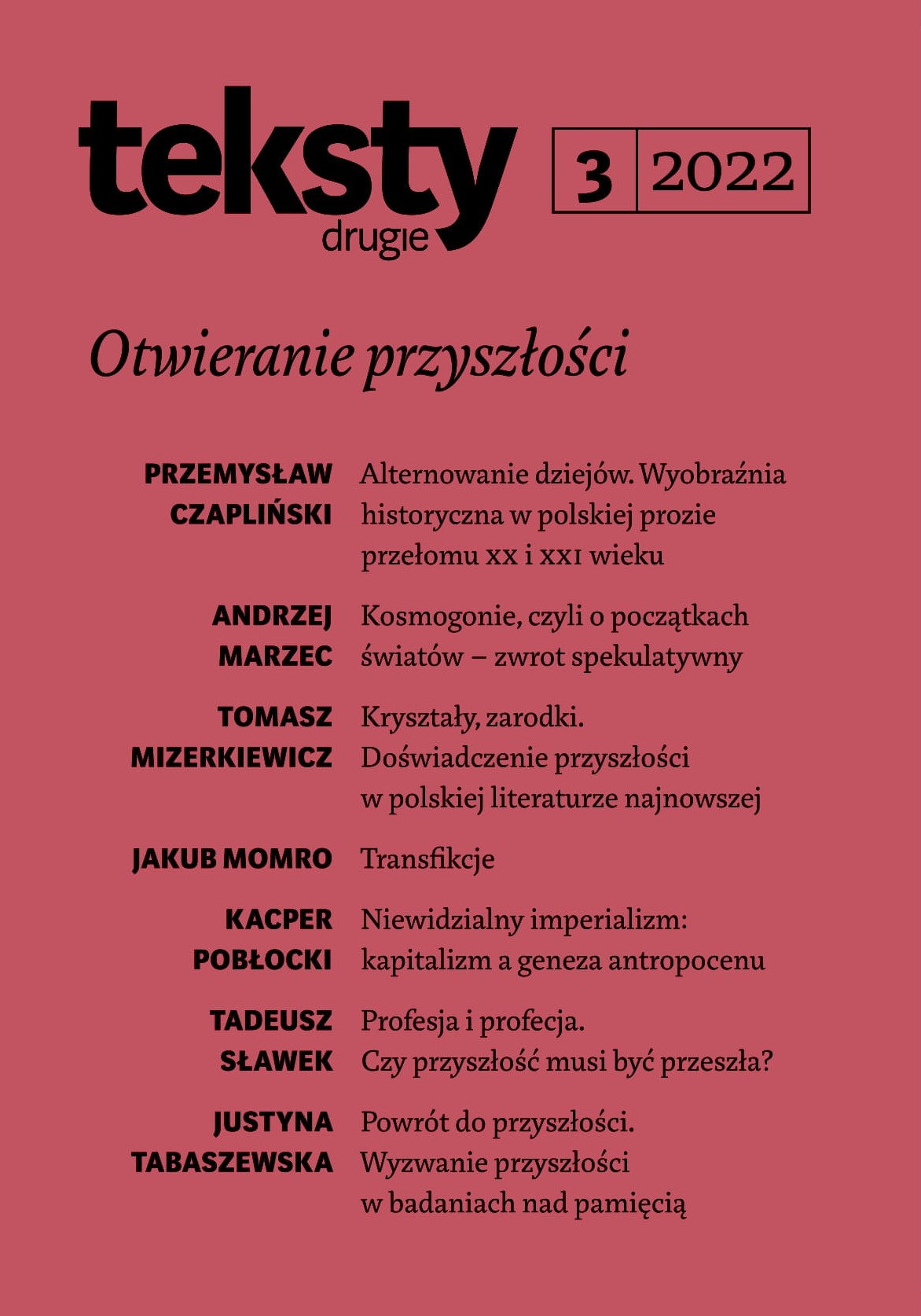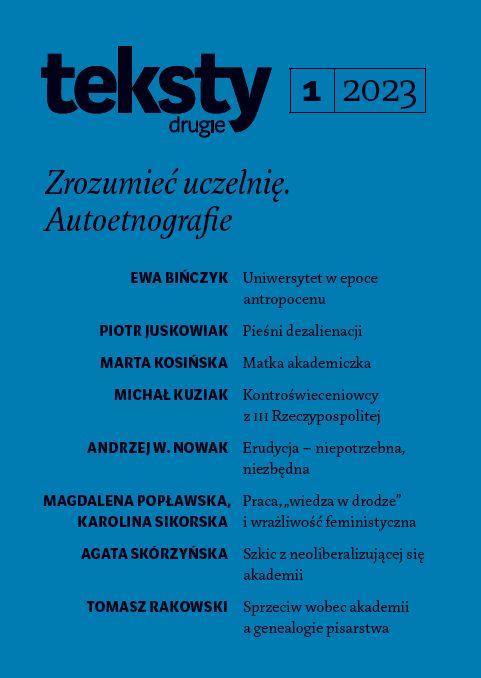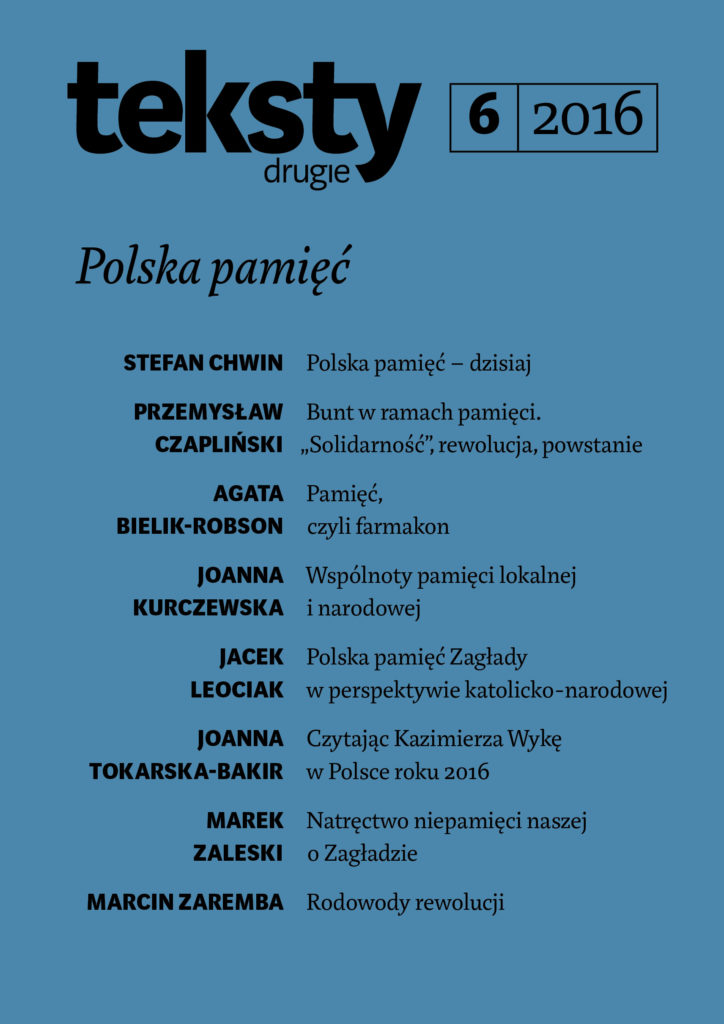
Necro-Performance: The Causative Effect of Fragments in Polish Cultural Memory
Nekroperformans. O sprawczym oddziaływaniu szczątków w polskiej pamięci kulturowej
Keywords: necro-performance; body; archive; fragments; remains; World War I; Wyspiański
Sajewska enters into dialogue with the two principal models of memory in Polish theatre: the Romantic paradigm that universalizes Poland’s peripheral status a proposed by Leszek Kolankiewicz in Dziady: Teatr święta zmarłych [Dziady: Theatre of the Feast of the Dead, 1999], and the model based on the parallelism between modernity and the Holocaust as established by Grzegorz Niziołek in Polski teatr zagłady [Polish Holocaust Theatre, 2013]. According to Sajewska, the rivalry between these two grand narratives about the Polish theatre community obscures other historical experiences. Her analysis of the presence of World War I in Polish cultural memory emphasizes the materiality of the allegedly ephemeral body. Negotiating meanings between theatrical historiosophy, anthropology and contemporary theories on the performativity of archives, Sajewska proposes a concept that draws not on the paradigm of the testimony but that of evidence – remains, traces, vestiges. Key to these concepts are the correlated notions of the body-archive and necro-performance. These notions problematize the relationship between the researcher and the archive material, while also suggesting a concrete strategy and practice of writing cultural history.
More...
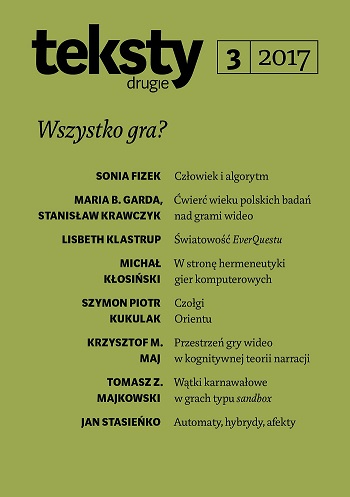
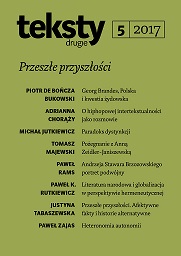
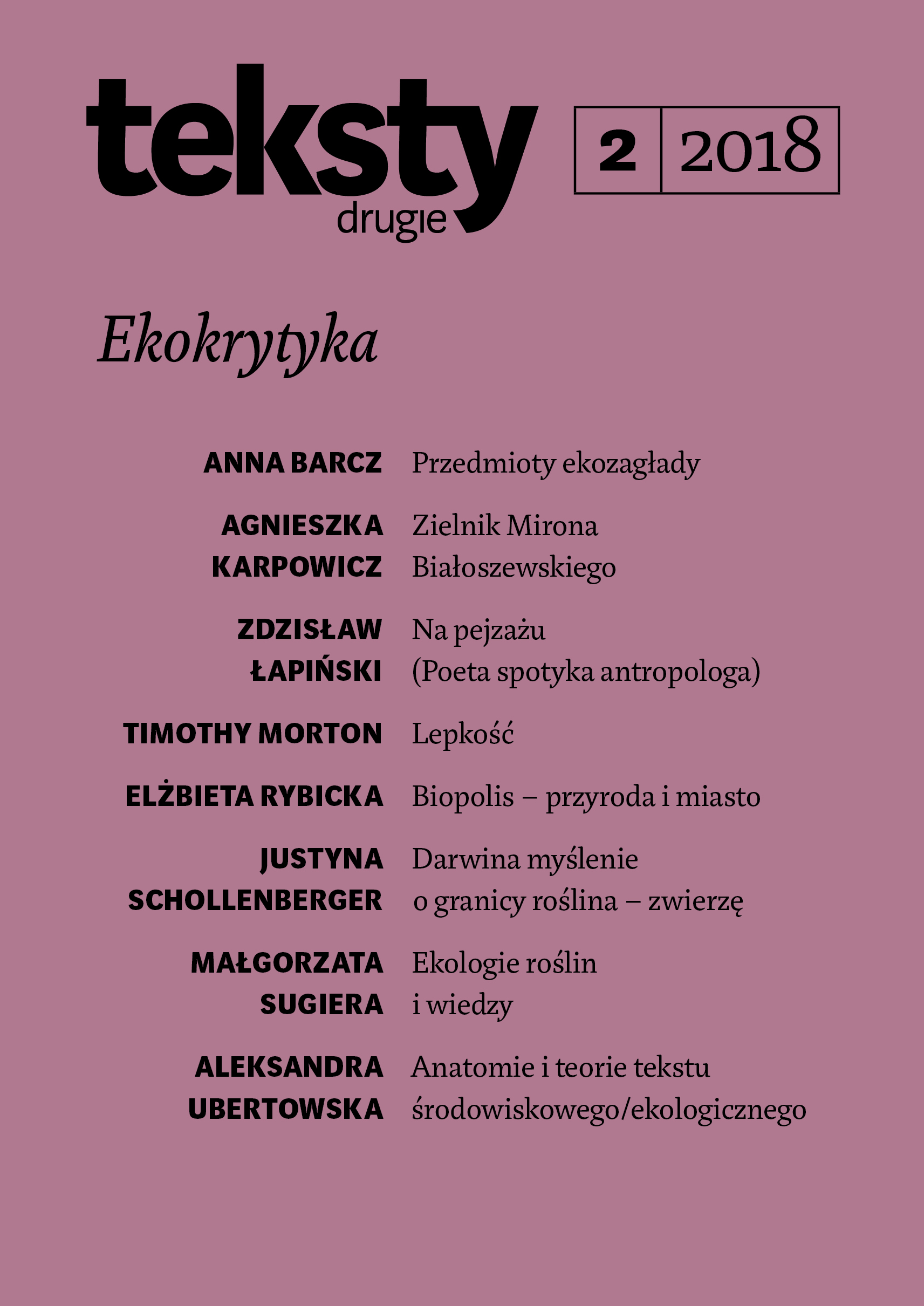
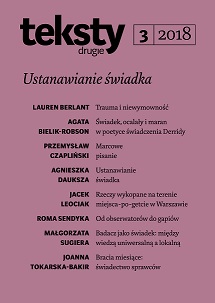
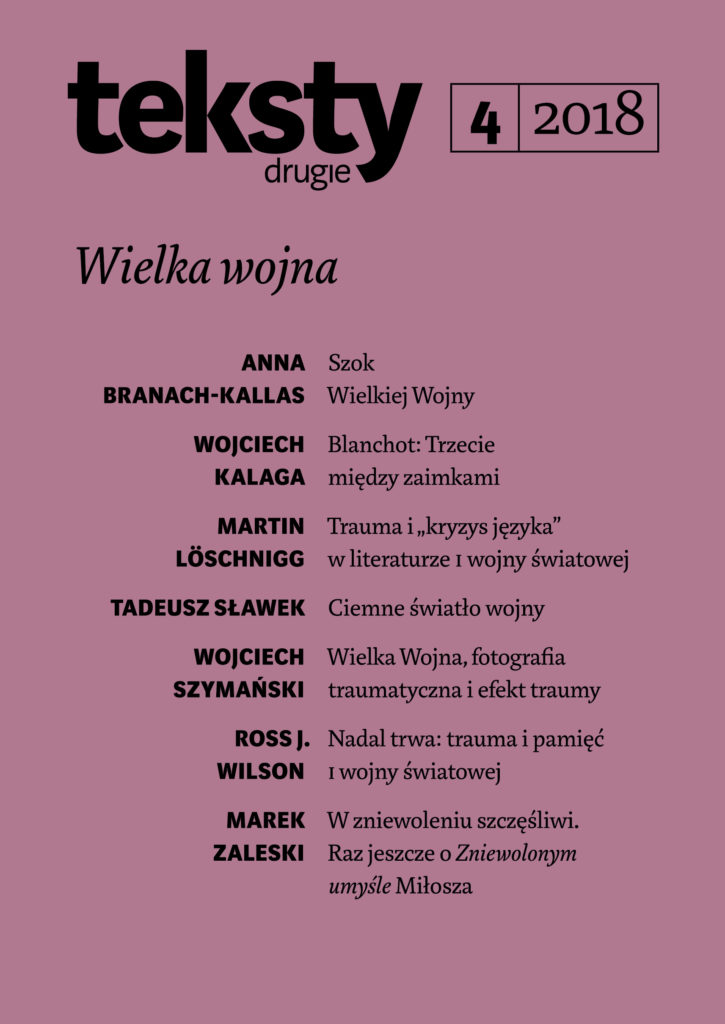
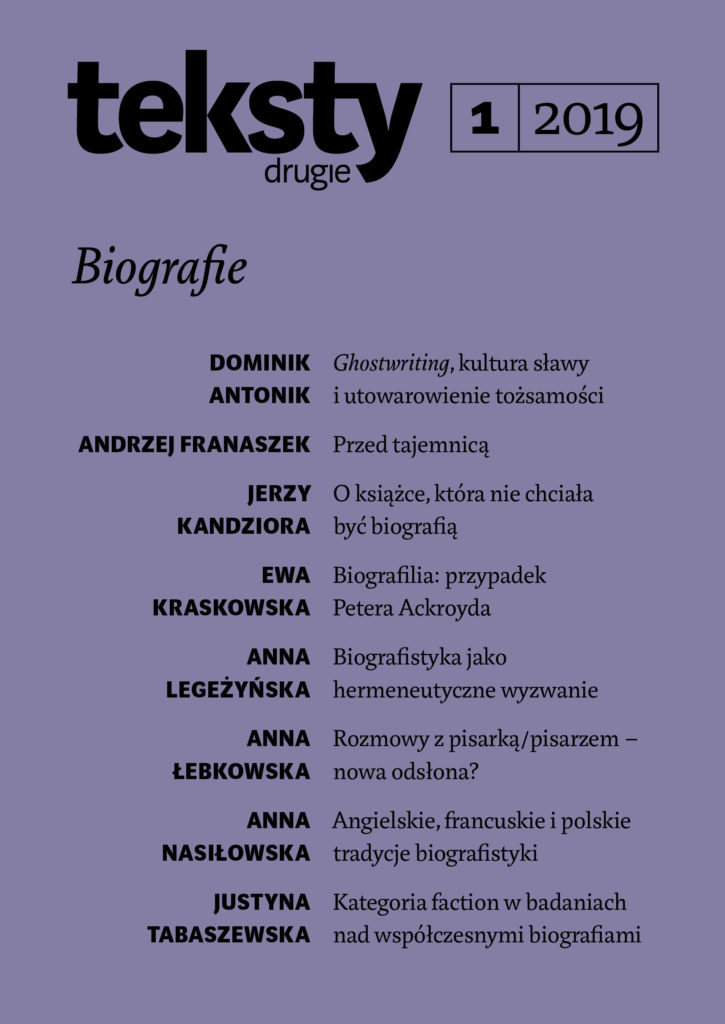
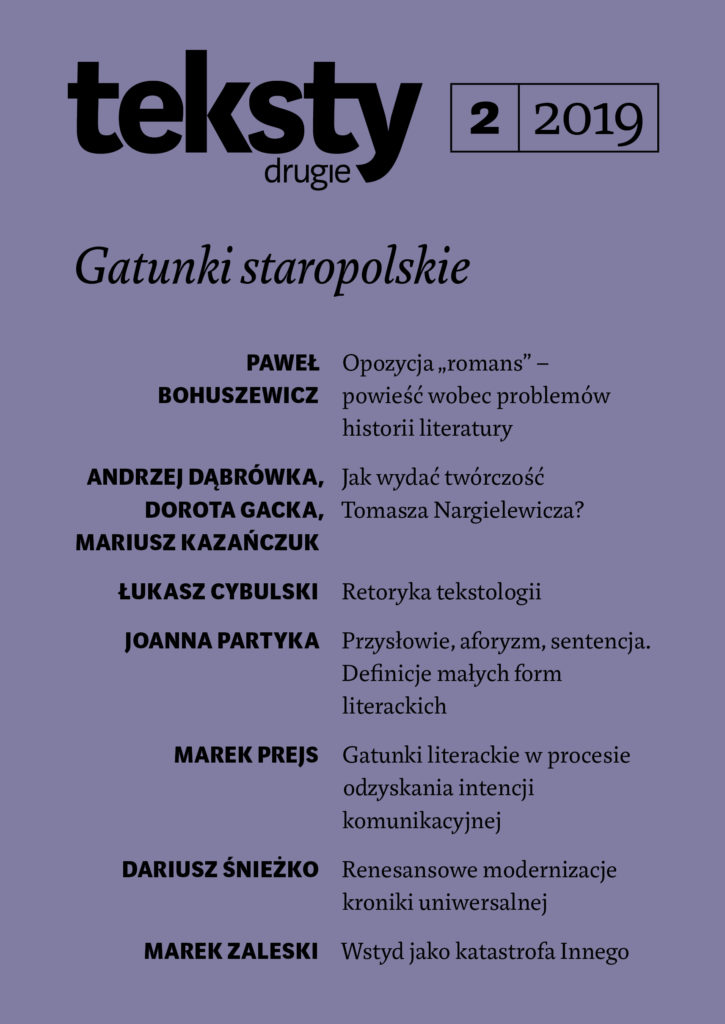
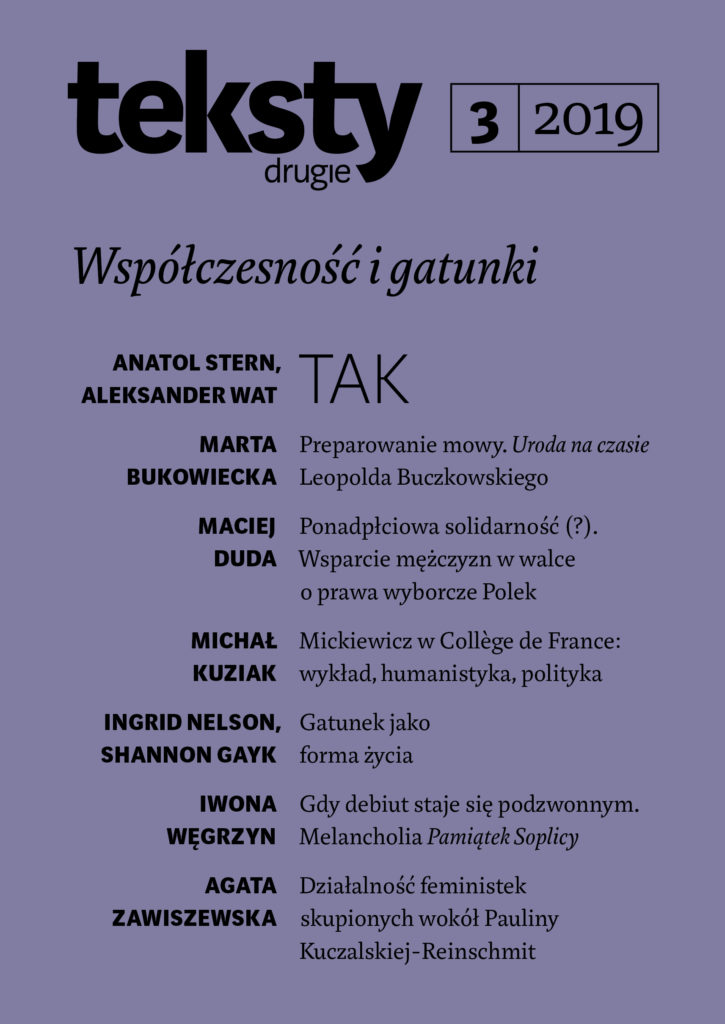
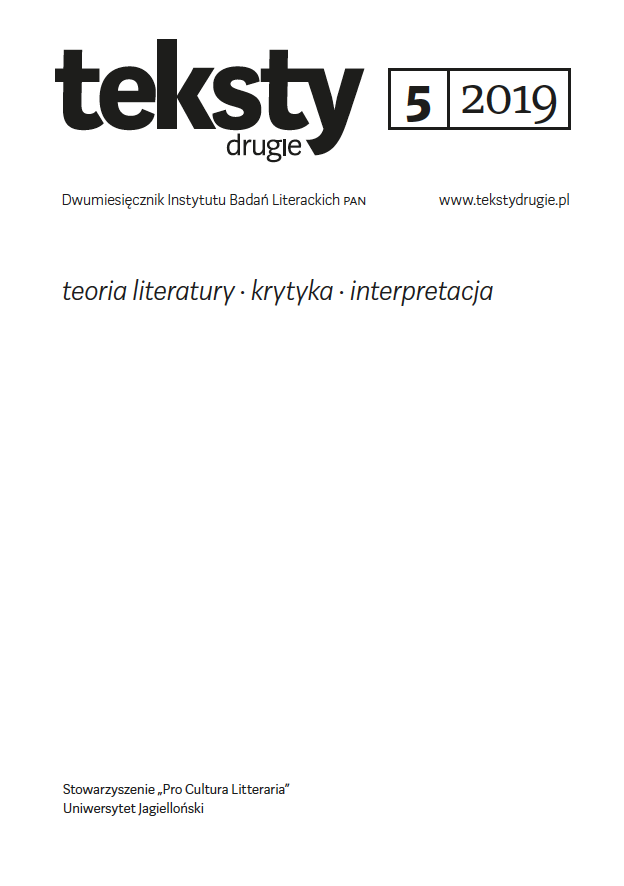
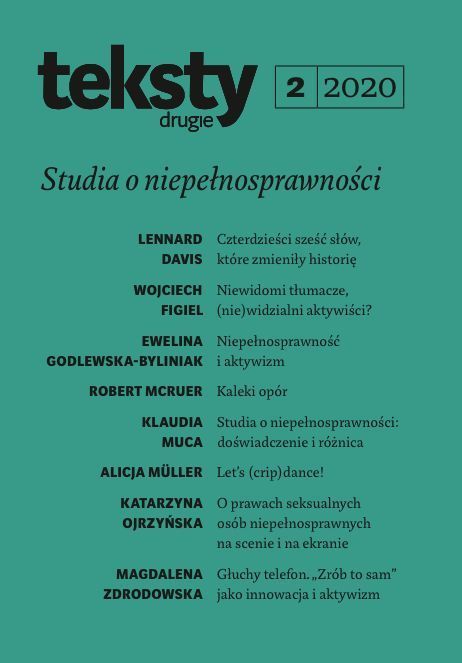
![Shale Fever or Heatstroke: On Agata Stasik’s Współwytwarzanie wiedzy o technologii [The Co-Creation of Knowledge about Technology]](/api/image/getissuecoverimage?id=picture_2020_58767.jpg)
